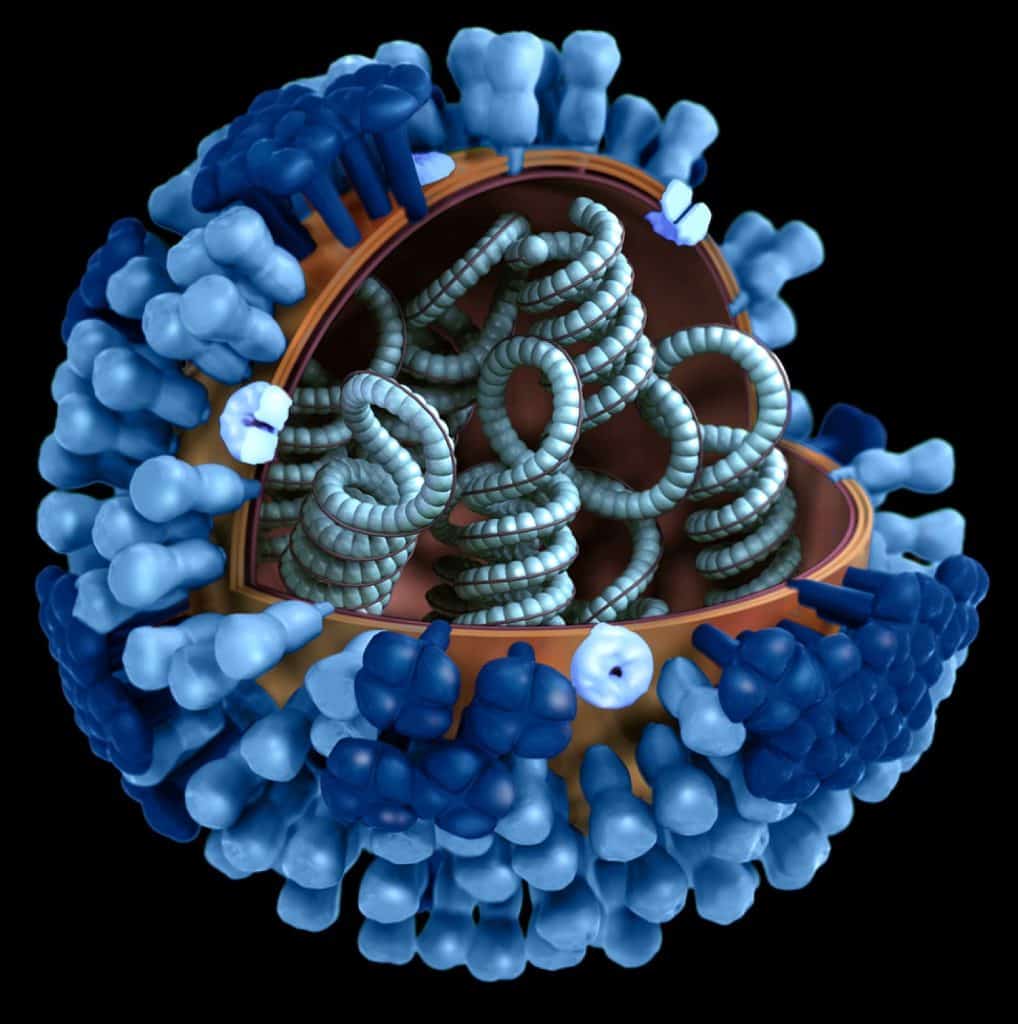
Low flu vaccine efficacy may be due to previous immune history, study finds
pharmafile | February 20, 2018 | News story | Manufacturing and Production, Research and Development | H3N2, Vaccine, flu, flue vaccine, influenza, pharma
The sometimes poor efficacy of influenza vaccines may be due to poor immune response and a patient’s wider immune history, a new study has found.
In 2012-13, the H3N2 component of the annual flu vaccine was shown to be effective in just 39% of patients, an issue that was attributed to the fact that the vaccine, like most, was grown in an egg, which can lead to mutations in its development and cause it to be less effective. Other explanations for low efficacy include production or design issues with the vaccine, or that the constituent strains used are poorly matched to those that come to circulate the public when flu season comes.
Flu vaccines work by stimulating the immune system to produce antibodies which recognise specific strains of the virus and disable it. With these specific antibodies already present in the immune system when it encounters the same strain, the body prioritises the reactivation of these same antibodies to fight it. This is known as “original antigenic sin”.
So antibodies generated through the body’s first encounter with a particular strain, whether through infection or a vaccine or other exposure, will take precedence when it comes to fighting it again. However, from year to year, the same strain can change slightly, meaning the antibodies are no longer as effective at disabling the virus. The factor explains why even a highly-effective flu vaccine may produce sub-par results in patients who have already encountered the strain it protects against.
“We see that both vaccinated and unvaccinated people were infected with similar flu viruses and that the vaccine didn’t elicit a strong immune response from most people in our study,” explained Dr Yonatan Grad, co-author of the study and Assistant Professor of Immunology and Infectious Diseases at the Harvard T.H. Chan School of Public Health.
The research team analysed blood samples from patients who received the 2012-13 vaccine and found no difference between their antibody response to the vaccine or the then-circulating flu strain. It is thought that this is because their immune systems already recognised so many attackable sites on the vaccine strain that it didn’t identify the subtle differences in the circulating form, meaning they were not able to fight the virus as effectively.
The findings do not mean that mutations in egg-grown vaccines are not a contributing factor to lower efficacies, but could change the way we understand flu response and prevention. New methods to grow vaccines without the need for eggs, growing them in insect cells or dog kidney cells instead, are also presenting new hope in the field. However, the team says that more research is needed to push adoption of more effective vaccine approaches.
“There hasn’t been enough consumer and medical demand to shift to more effective vaccines,” remarked Dr Sarah Cobey, lead author and Assistant Professor of Ecology and Evolution at UChicago. “Until recently, there also hadn’t been as much research on the complexity and variation in the immune response to influenza.”
“We need to do more basic research on how to induce responses to the right sites on the virus, and this will require us to understand original antigenic sin better. We also need to understand why the vaccine appears to be bad at eliciting responses in some people some of the time. Is there really no response, or are we just not looking in the right places?”
Matt Fellows
Related Content

GSK shares new data for RSV vaccine Arexvy
GSK announced positive results from its phase 3 trial which assessed the immune response and …

GSK and Zhifei partner for shingles vaccine promotion in China
GSK has announced that it has come to an exclusive agreement with Chingqing Zhifei Biological …

Moderna shares data from phase 1/2 trial for combination flu and COVID-19 vaccine
Moderna has announced positive interim results from the phase 1/2 trial of mRNA-1083, its investigational …








